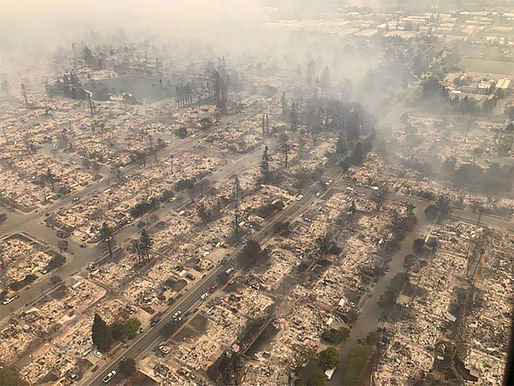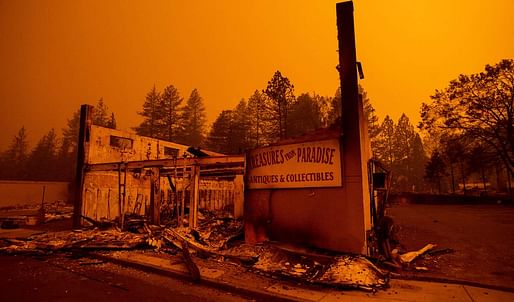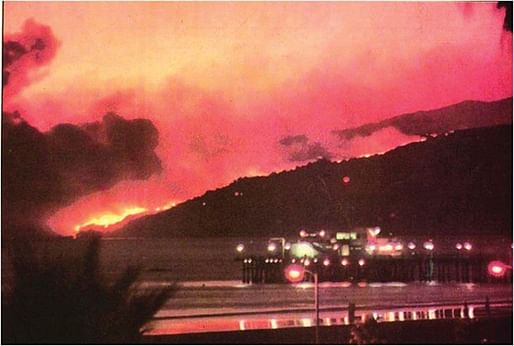

As Spain, France, Greece, and Germany grapple with a spate of historic wildfires that have gripped the region in recent weeks, a group of researchers in the American West is now advocating for fairly extreme shifts in development trends there which would buck others currently favored by the industry that involve more direct applications of design in the built environment.
Writing in FastCompany this week, UC Davis professors Emily Schlickman, Brett Milligan, and Stephen M. Wheeler proposed a three-point plan that entails zoning changes (including San Diego’s approach of avoiding hillside development) and placing severe limitations on new construction, which are seen as a large part of the problem in Northern California and other places.
The trio pointed to recent examples from Los Angeles County and an existing law in Oregon as frameworks that could easily be adopted in the sunshine state, backed up by aggressive legal measures and incentivizations that would further prevent development sprawl from encroaching into danger zones (which are still in dire need of precise documentation).

Other than limiting development in a state that is simultaneously burdened by the need to bring online an incredible amount of residential housing options in a relatively short period of time (a fact they seem to have ignored), the professors also recommended what they called the “incentivized relocating” of populations away from risk areas using federally-funded buyouts offered to homeowners in lieu of insurance-funded rebuilding.
A private version of this measure has already been successful in Paradise, California, which has shed 30% of its population since the 2018 Camp Fire that also claimed 95% of the rural community’s total structures.
They recommended doing so via the removal of federal fire insurance protections and enabling the easy transfer of development rights in addition to the “wholesale” relocation of some communities away from forested areas, which has only been applied previously in the wake of flooding. (Californians are, however, moving inland, so this may not be the most viable answer given the state’s existing economic constraints.)

Wildfire retreat is a very real phenomenon in places that have not traditionally been as affected as the arid western states. A recent publication indicated a positive correlation between wildfires and depopulation in some of the most at-risk southern European communities. Some regions in Australia have been affected by this migration as well.
This is not the best news for those advocating for design-based solutions to protect life and property, which to date include fire-resistant housing and other resilience measures. Human settlement has, of course, always been determined by environmental considerations, and progressive changes to building codes have been proven to be effective over the past four decades, but climate-related migration is an undeniable fact of life in the 21st century.
“Even with ideal landscape management, wildfire risks to communities will continue to increase, and retreat from the wildland-urban interface will become increasingly necessary,” the trio concluded. “The primary question is whether that retreat will be planned, safe and equitable, or delayed, forced and catastrophic.”
2 Comments
RETREAT! We have no business stretching all over kingdom come as if we're the only living creatures on this earth. Plus, think of kids actually being able to walk to their friends' houses!
Also, am I the only one who found the use of "in the sunshine state" to refer to CA, to be a bit odd...?
Block this user
Are you sure you want to block this user and hide all related comments throughout the site?
Archinect
This is your first comment on Archinect. Your comment will be visible once approved.